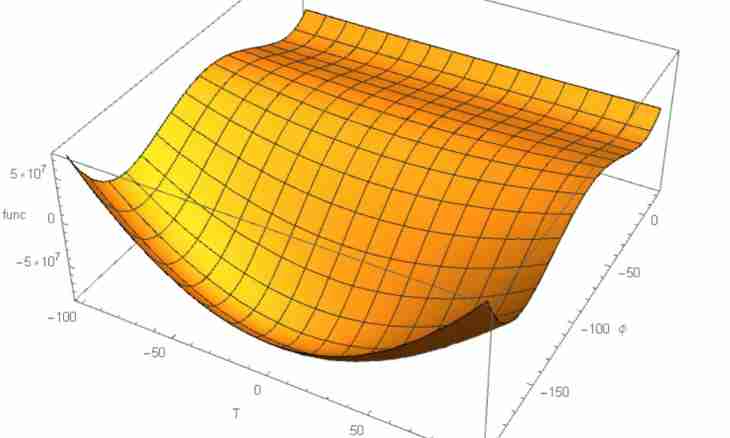The derivative of a certain function pays off by method of differential calculus. The derivative in this point shows the speed of change of function and is equal to a limit of increment of function to increment of an argument.
Instruction
1. A function derivative – the central concept of the theory of differential calculus. Definition of a derivative through the relation of a limit of increment of function to increment of an argument is the most widespread. Derivatives can be the first, second and highest orders. Designation of a derivative in the form of the sign of an apostrophe, for example, of F'(x) is accepted. The second derivative is designated by F’’ (x). Derivative n-go of an order – F^(n) (x), at this n – an integer more than 0. It is a method of designation of Lagrange.
2. Derivative of function of several arguments, received on one of them, is called private derivative is also one of function differential elements. The sum of derivatives of one order on all arguments of initial function is its full differential of this order.
3. Let's consider calculation of a derivative on the example of differentiation of the simple f (x) function = x^2. By definition: f’ (x) = lim ((f(x) – f(x_0)) / (x – x_0)) = lim ((x^2 – x_0^2) / (x – x_0)) = lim ((x – x_0) * (x + x_0) / (x – x_0)) = lim (x + x_0). While x-> x_0 is had: f’ (x) = 2*x_0.
4. For simplification of finding of a derivative there are rules of differentiation allowing to accelerate calculation time. Basic rules such: • With’ = 0, where C – a constant; • x’ = 1; • (f + g)’ – f’ + g’; • (f*g)’ = f '*g + f*g’; • (C*f)’ = C*f’; • (f/g)’ = (f '*g – f*g’)/g^2.
5. For finding of a derivative of n-go of an order Leibniz's formula is used: (f*g) ^(n) =? C (n) ^k*f^(n-k) *g^k, where C (n) ^k – binomial coefficients.
6. Derivatives of some protozoa and trigonometrical functions: • (x^a)’ = a*x^(a-1); • (a^x)’ = a^x*ln(a); • (sin x)’ = cos x; • (cos x)’ = - sin x; • (tg x)’ = 1/cos^2 x; • (ctg x)’ = - 1/sin^2 x.
7. Calculation of derivative difficult function (compositions of two or more functions): f’ (g(x)) = f’ _g*g’ _x. This formula is valid only in case function g is differentiated in x_0 point, and function f has a derivative in a point of g(x_0).

